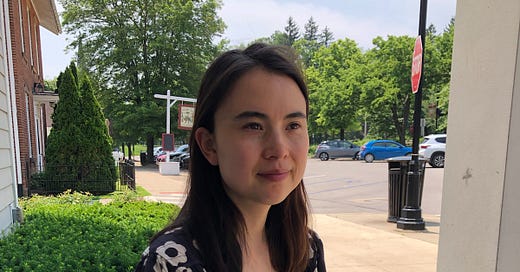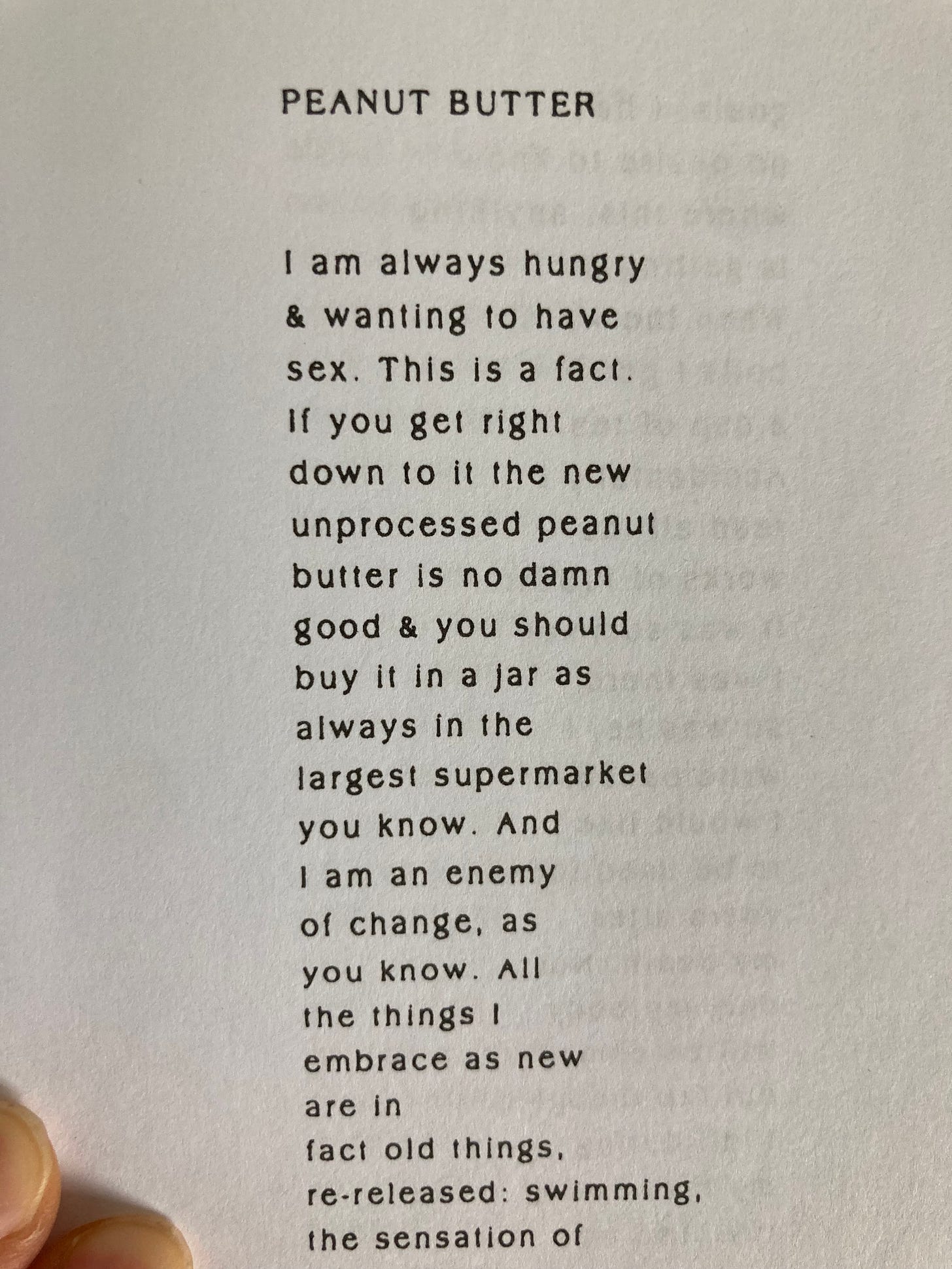A lifetime ago (two weeks ago), I found myself at my alma mater, attending the Kenyon Review Writers Workshop. Strictly speaking, there is no connection between the Ashley of 2015 and the Ash of this moment. (As Zen master Dōgen said, "Ashes do not come back to firewood.") Still, walking along familiar paths, I recognized certain psychogeographic signposts: this is where Ashley was transported to her dorm via stolen grocery cart; this is where she hid boxed wine; this is the church she snuck into for an unofficial midnight screening of Requiem for a Dream; this is where she smoked camel golds, squatting & spitting at passersby, allegedly making a statement about xenophobia (she was always "allegedly" making a statement about something); an innocent 18 year old girl unaware of her innocence, desperate to be a demimonde, embarrassed that she didn't know how to use a bong (she never figured it out), or inhale a cigarette or have coolly detached casual sex. I digress.
Two weeks ago (a lifetime ago), with a cohort of poets so skilled I felt viscerally afraid. Inner monologue: their poems sound like poems! WHAT THE FUCK? (i.e. amazement) How did Ambriel write that poem in ONE DAY?! I am way out of my depth. I don't even know how to write a poem! Why am I here?!
When it was my turn to be workshopped, I actually said, "Well, someone has to write the worst poem, and it might as well be me."
(For further hortatory remarks re: how bad poems are the path to good poems & the profound spiritual and creative benefits of sucking at life and art, please purchase my book Still Worm and employ me on the lecture circuit).
My impostor syndrome dissolved when Kee presented his poem "Proud Young Virgins," because anyone who writes tender, gay, holy nipple poems is clearly the literary offspring of Catullus1 (84 - 54 BCE), or at least Eileen Myles, and therefore a metaphysical sibling. In a praiseworthy moment of praise, Justin said, "This poem affronts my inner sense of modesty." From then on, our cohort was dubbed the “Proud Young Virgins” (P.Y.V.), because isn't that the gist of living life poetically? To wake up and see the world as if for the first time, time after time, moment after moment, like an eternal virgin? To uncover the eros in the quotidian?
When I think of happiness, I think of doing Kate Bush karaoke with Kee (finally able to show off my splits, which lent me instant credibility on the dance floor). I think of practicing high kicks under the "Upside Down" tree (an epic weeping willow where, in another era, Ashley listened to Bon Iver with a long face, waiting to be “discovered”). I think of the public reading where Kim announced that it was her first time reading poetry to strangers, as well as her first time taking beta blockers. I think of the P.Y.V.'s final workshop, located inside of a 60 ft tall Richard Serra sculpture: our beloved leader (the experimental poet Anthony Cody) made a polyvocal poem out of our workshop pieces, which we recited simultaneously, our voices resounding through the imposing steel phallus like a schizophrenic greek chorus.
For a fleeting humid week in June, I experienced a fulguration of familial feeling. No longer lonely, I was among those who are afflicted with that incurable and contagious disease which is poetry.2
In the New Yorker article Latin Lover, Daniel Mendelsohn remarks, “Just how you can call your boss a skullfucker and still maintain a reputation for refined erudition and literary sophistication was a question that stumped me.”
I am re-reading Don Quixote, the classic novel about an ordinary man who - crazed by reading - becomes "metaphysically and psychologically bound by his dedication to knight errantry" (relatable). Today I scribbled down the following passage in my commonplace book. (For context, Don Quixote's niece has enlisted the help of the priest and the barber to burn Don Quixote's books.)
"Oh, señor!" said the niece. "Your grace should send [the pastoral novels] to be burned just like the rest, because it is very likely that my dear uncle, having been cured of the chivalric disease, will read these and want to become a shepherd and wander through the woods and meadows singing and playing, and, what would be even worse, become a poet, and that, they say, is an incurable and contagious disease."







